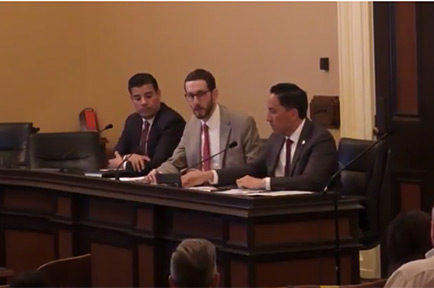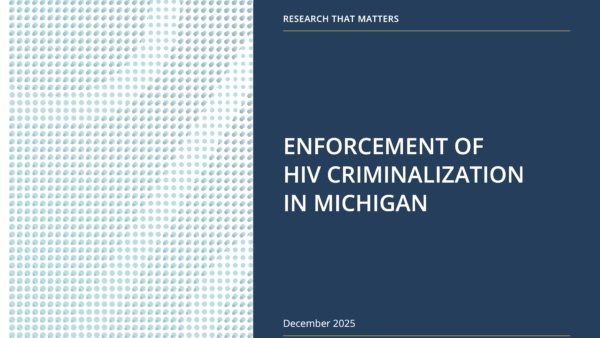
On Thursday, the LGBT Caucus held a briefing on the decriminalizing HIV and SB 239 introduced by State Senator Scott Wiener (D-San Francisco).
The controversial bill, Senate Bill 239, introduced in early February, would repeal laws passed more than three-decades ago that Wiener and supporters say are discriminatory and not based in science. The proposed bill would treat HIV like other communicable diseases under California Law.
According to the proposed bill, it would make it a misdemeanor instead of a felony to intentionally expose someone to HIV.
Here is a look at the Legislative Digest regarding the bill:
LEGISLATIVE COUNSEL’S DIGEST
Here is a copy of the Press Release introducing the Bill on Feb 6
Senator Wiener and Assemblymember Gloria Announce Bill to Modernize Discriminatory HIV Criminalization Laws
Today, Senator Scott Wiener (D-San Francisco) and Assemblymember Todd Gloria (D-San Diego) introduced a bill to modernize laws that criminalize and stigmatize people living with HIV. Assemblymember David Chiu (D-San Francisco) is also a co-author of the bill. Senate Bill 239 would amend California’s HIV criminalization laws, enacted in the 1980s and ‘90s at a time of fear and ignorance about HIV and its transmission, to make them consistent with laws involving other serious communicable diseases.
The bill is cosponsored by the ACLU of California, APLA Health, Black AIDS Institute, Equality California, Lambda Legal and Positive Women’s Network – USA. The organizations are part of Californians for HIV Criminalization Reform (CHCR), a broad coalition of people living with HIV, HIV and health service providers, civil rights organizations and public health professionals dedicated to ending the criminalization of HIV in California. San Francisco Supervisor Jeff Sheehy also attended the announcement.
“These laws are discriminatory, not based in science, and detrimental to our HIV prevention goals,” said Senator Wiener. “They need to be repealed. During the 1980s — the same period when some proposed quarantining people with HIV — California passed these discriminatory criminal laws and singled out people with HIV for harsher punishment than people with other communicable diseases. It’s time to move beyond stigmatizing, shaming, and fearing people who are living with HIV. It’s time to repeal these laws, use science-based approaches to reduce HIV transmission (instead of fear-based approaches), and stop discriminating against our HIV-positive neighbors.”
SB 239 updates California criminal law to approach transmission of HIV in the same way as transmission of other serious communicable diseases. It also brings California statutes up to date with the current understanding of HIV prevention, treatment and transmission. Specifically, it eliminates several HIV-specific criminal laws that impose harsh and draconian penalties, including for activities that do not risk exposure or transmission of HIV. It would make HIV subject to the laws that apply to other serious communicable diseases, thereby removing discrimination and stigma for people living with HIV, and maintaining public health.
“It’s time for California to reevaluate the way it thinks about HIV and to reduce the stigma associated with the disease,” said Assemblymember Gloria. “Current state law related to those living with HIV is unfair because it is based on the fear and ignorance of a bygone era. With this legislation, California takes an important step to update our laws to reflect the medical advances which no longer make a positive diagnosis equal to a death sentence.”
“As a former prosecutor, I know firsthand the need to get outdated and unscientific laws based on homophobia and fear off the books,” said Assemblymember Chiu. “These laws criminalize and stigmatize people with HIV, and they must be updated.”
Legislators passed a number of laws three decades ago, at the height of the HIV epidemic, that criminalized behaviors of people living with HIV or added HIV-related penalties to existing crimes. These laws were based on fear and on the limited medical understanding of the time. When most of these laws were passed, there were no effective treatments for HIV and discrimination against people living with HIV was rampant.
In the decades since, societal and medical understanding of HIV has greatly improved. Effective treatments dramatically lengthen and improve the quality of life for people living with HIV—treatments that also nearly eliminate the possibility of transmission. In addition, similar treatments are available to HIV-negative people to nearly eliminate risk of infection. Laws criminalizing people with HIV do nothing to further public health and, in fact, stigmatize them, discouraging testing or obtaining necessary medical care. The laws also reduce the likelihood of disclosure of a positive HIV status to sexual partners.
“These laws are disproportionately used against women and people of color, and fuel stigma, violence and discrimination,” said Naina Khanna, executive director of the Positive Women’s Network – USA. “Despite their claims to protect vulnerable communities, these laws actually cause further harm, both to people living with HIV and the broader public.”
HIV criminalization disproportionately affects women and people of color. Forty-three percent of those criminalized under California’s HIV-specific criminal laws are women, despite comprising only 13 percent of people living with HIV in the state. Blacks and Latinos make up two-thirds of people who came into contact with the criminal justice system based on their HIV status, despite comprising only about half of people living with HIV/AIDS in California.
“These laws impose felony penalties and harsh prison sentences on people who have engaged in activities that do not risk transmission and do not endanger public health in any way,” said Rick Zbur, executive director of Equality California. “Modernizing them would reduce discrimination and stigma for people living with HIV. Ending stigma is at the core of ending HIV. Treatment of HIV has entered the 21st century – it’s time for California’s laws to reflect that, as well.”
“Living with HIV should not be a crime in California,” said Supervisor Jeff Sheehy, who is the first HIV positive member of the San Francisco Board of Supervisors and a leader in San Francisco’s Getting to Zero coalition to end all new HIV infections. “That’s why I support Senator Wiener’s legislation.”
In addition to the organizations sponsoring the bill, it is currently supported by CHCR members which include the Los Angeles LGBT Center, the Los Angeles HIV Law and Policy Project, the Transgender Law Center, Mexican American Legal Defense and Education Fund (MALDEF), the Free Speech Coalition, Sex Workers Outreach Project (SWOP) and Erotic Service Providers Legal, Education, and Research Project (ESPLERP).
Published on East County Today on March 10th, 2017









